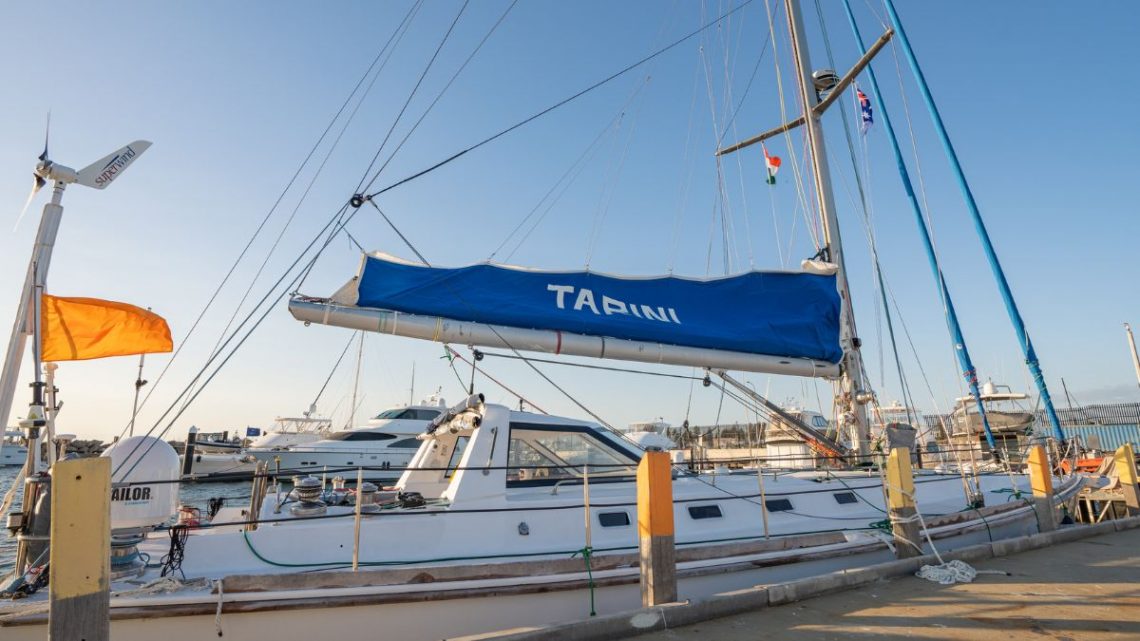In the ongoing voyage for global circumnavigation by Indian Navy women officers, the duo of Lieutenant Commander Dilna K. and Lt. Cdr. Roopa A., onboard sailing vessel INSV Tarini have successfully crossed the 50° south latitude– the halfway mark of their travels.
In the third leg of their expedition in the Navika Sagar Parikrama II mission, the officers have already navigated two storms and crossed Point Nemo– the most remote location on earth.
Now, having achieved the milestone of sailing past the 50° south latitude, they are headed towards the dangerous ‘Furious Fifties’.
The Furious Fifties are strong westerly winds that blow in the Southern Hemisphere, typically between the latitudes of 50° and 60° south. They are part of a series of wind patterns in the Southern Ocean, alongside the Roaring Forties (40°-50° south) and the Screaming Sixties (60°-70° south).
These winds are known for their intense strength and consistency, often reaching speeds exceeding 100 km/h.
These powerful Furious Fifties winds are caused by a combination of factors, including the Earth’s rotation, the lack of landmasses in the southern hemisphere, and the temperature difference between the equator and the poles.
The Furious Fifties create challenging conditions for sailors, with large waves and rough seas.
Low-pressure systems bring quick shifts in wind direction and temperature, making navigation treacherous. These systems can develop suddenly, with secondary lows forming along fronts, complicating weather forecasting and route planning, according to Yachting World.
The vast, open ocean with no nearby land masses makes navigation challenging and increases the risks associated with emergencies. Sailors must be self-sufficient and prepared for extended periods without external assistance.
But there are some bright spots despite the dangers. The Navy, in a recent statement, said that during their passage, the officers collected water samples from the area. These are expected to provide important data on marine biodiversity and the chemical composition of the water. That in turn would contribute to ongoing oceanographic research.
Another bright spot is that it is bound to make for an unforgettable memory for Lt Cdr. Dilna K., who is celebrating her birthday today (February 7).
Link to article –

